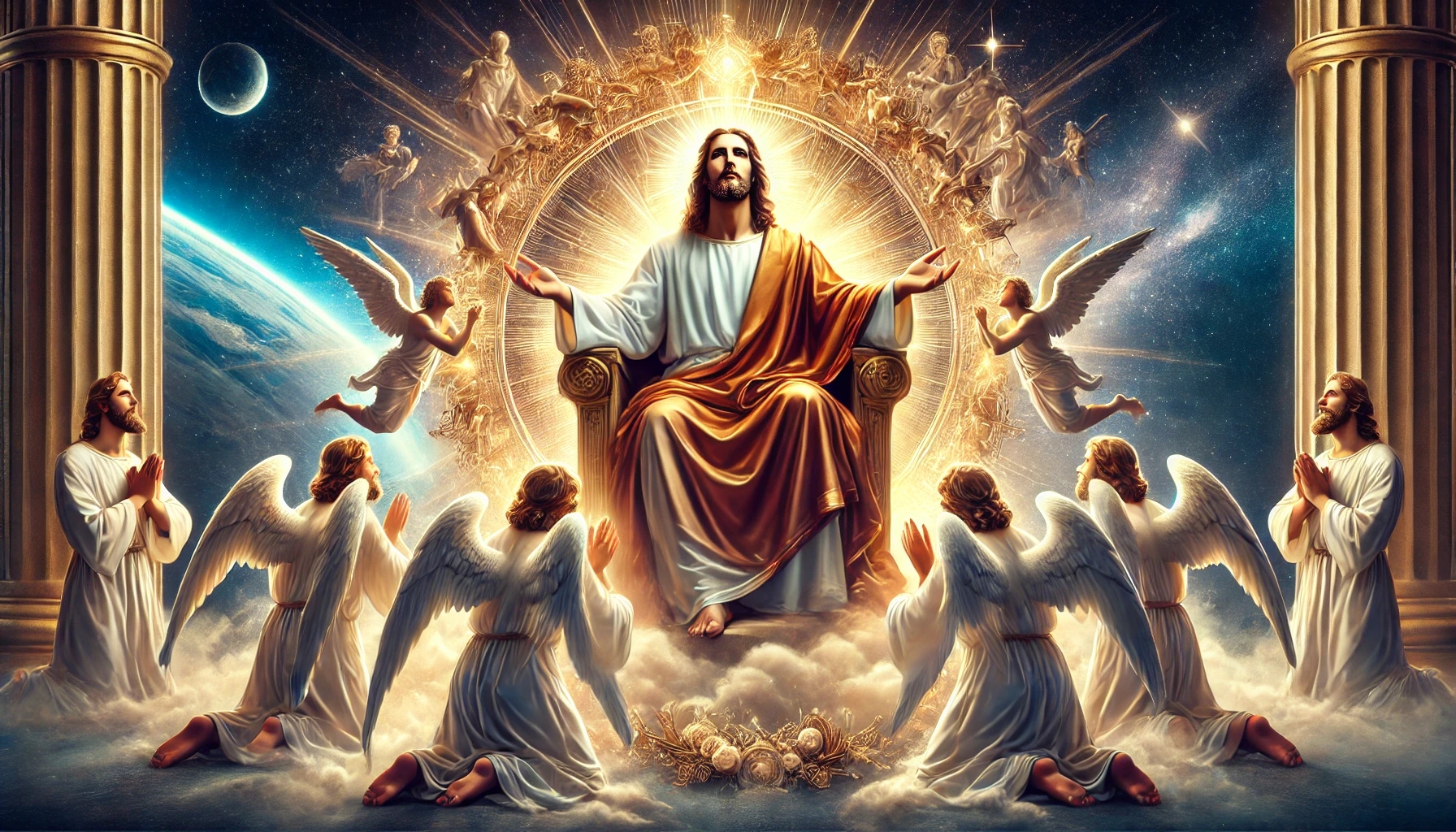
The Message of the Letter to the Hebrews
The Letter to the Hebrews is a unique book in the New Testament, particularly addressing Jewish Christians. Its main purpose is to present the superiority of Jesus Christ—over angels, Moses, the Levitical priesthood, and the Old Covenant system. The author encourages believers to remain steadfast in faith despite persecutions and not to revert to old Jewish practices.
Central Themes of the Letter to the Hebrews:
-
The Superiority of Christ:
-
Jesus is higher than the angels (Hebrews 1:4-14).
-
He surpasses Moses, the greatest prophet of Israel (Hebrews 3:1-6).
-
His high priesthood is eternal and perfect, according to the order of Melchizedek (Hebrews 4:14-5:10; 7:1-28).
-
-
The New Covenant is Better than the Old:
-
Jesus’ sacrifice is once and for all, unlike the repeated animal sacrifices of the Old Covenant (Hebrews 9:11-14; 10:10-14).
-
The New Covenant brings an intimate relationship with God, with His laws written on hearts (Hebrews 8:10).
-
-
Faith and Perseverance:
-
Chapter 11 describes the “heroes of faith” and encourages us to follow their example.
-
Christians are called to hold on to hope despite suffering and trials (Hebrews 12:1-3).
-
-
Warnings Against Apostasy:
-
The letter includes serious warnings not to fall away from the faith (Hebrews 6:4-6; 10:26-31).
-
At the same time, God’s grace and mercy are emphasized (Hebrews 4:16).
-
-
Practical Exhortations for Christian Living:
-
Love, hospitality, purity, and obedience should characterize the lives of believers (Hebrews 13:1-7).
-
Why is the Letter to the Hebrews Relevant Today?
The Letter to the Hebrews reminds us that Jesus Christ is the center of our faith. In a time when many distractions and challenges can weaken our faith, it calls us to perseverance and faithfulness. It shows that no earthly thing can replace the salvation made possible through Jesus’ sacrifice.
February 20, 2024
DAILY BIBLE READING – Hebrews Chapter 1
1 God, who at sundry times and in divers manners spake in time past unto the fathers by the prophets,
2 Hath in these last days spoken unto us by his Son, whom he hath appointed heir of all things, by whom also he made the worlds;
3 Who being the brightness of his glory, and the express image of his person, and upholding all things by the word of his power, when he had by himself purged our sins, sat down on the right hand of the Majesty on high:
4 Being made so much better than the angels, as he hath by inheritance obtained a more excellent name than they.
5 For unto which of the angels said he at any time, Thou art my Son, this day have I begotten thee? And again, I will be to him a Father, and he shall be to me a Son?
6 And again, when he bringeth in the firstbegotten into the world, he saith, And let all the angels of God worship him.
7 And of the angels he saith, Who maketh his angels spirits, and his ministers a flame of fire.
8 But unto the Son he saith, Thy throne, O God, is for ever and ever: a sceptre of righteousness is the sceptre of thy kingdom.
9 Thou hast loved righteousness, and hated iniquity; therefore God, even thy God, hath anointed thee with the oil of gladness above thy fellows.
10 And, Thou, Lord, in the beginning hast laid the foundation of the earth; and the heavens are the works of thine hands:
11 They shall perish; but thou remainest; and they all shall wax old as doth a garment;
12 And as a vesture shalt thou fold them up, and they shall be changed: but thou art the same, and thy years shall not fail.
13 But to which of the angels said he at any time, Sit on my right hand, until I make thine enemies thy footstool?
14 Are they not all ministering spirits, sent forth to minister for them who shall be heirs of salvation?
King James Version. Public Domain
Commentary
Introduction:
The Letter to the Hebrews begins with a powerful revelation: In the past, God spoke in many ways through the prophets, but in these last days He has definitively revealed Himself through His Son, Jesus Christ. Chapter 1 highlights the uniqueness and superiority of Jesus over all angels. While angels are important messengers of God, the Son Himself is the heir of all things, the Creator of the world, and the perfect image of God. This chapter invites us to recognize more deeply the glory and majesty of Christ and to trust Him as King and Lord.
Commentary:
1.God Speaks through the Son (Verses 1–4)
-
Past and Present: In the past, God spoke to the fathers through the prophets; now He speaks through His Son—the perfect and final Word of God.
-
The Glory of the Son:
-
He is the heir of all things.
-
Through Him, the world was created.
-
He reflects the glory of God and is the exact representation of His being.
-
He sustains the universe by His mighty word.
-
Through His sacrifice, He cleansed us from our sins and took His place at the right hand of God.
-
-
Application: Jesus is not just a teacher or prophet—He is the Creator, Redeemer, and Lord. Our trust should be placed in Him alone.
2.The Son Is Higher than the Angels (Verses 5–14)
-
Comparison with the Angels:
-
Unique Sonship (v.5): God never said to any angel, “You are my Son.”
-
Worshiped by Angels (v.6): All angels are to worship Jesus—signifying His divinity.
-
His Eternal Kingdom (v.8–9): Jesus reigns with justice; He loves righteousness and hates injustice.
-
Creator and Unchanging (v.10–12): While creation passes away, Christ remains the same.
-
Ruler over Enemies (v.13): Jesus sits at God’s right hand until all His enemies are placed under His feet.
-
The Role of Angels (v.14): Angels are ministering spirits sent to serve believers, but never equal to the Son.
-
-
Application:
-
Worship belongs to Jesus alone, not to angels or other spiritual beings.
-
In a world of constant change, we can rely on Christ, who remains eternally the same.
-
We are encouraged to live under His authority and grace, as He reigns over all.
-
Summary:
Hebrews 1 reveals the incomparable greatness of Jesus Christ. He is not merely a messenger of God—He is the Son, the heir, the Creator, and the Sustainer of the universe. Through His work of atonement, He has taken a place of the highest honor, far above all angels. While angels serve God and support His children, worship and lordship belong to Christ alone. This chapter calls us to acknowledge the lordship of Jesus, to approach Him with reverence, and to orient our entire lives around Him. In Him, we find an unchanging, faithful Lord who reigns righteously and leads us to eternal salvation.
![]()

WEEKLY SPIRIT OF PROPHECY READING – Ellen White | Steps to Christ
Chapter 5—Consecration
Read online here
Commentary
Introduction: The Meaning of Devotion
Devotion to God is not a one-time act but a profound, life-changing decision. The Lord promises that those who seek Him with all their heart will find Him (Jeremiah 29:13-14). Yet true devotion requires humility, a struggle against one’s own self, and a complete renewal of our being. Our sinful nature has separated us from God, but He calls us to repentance and offers us the opportunity to return to His presence through His grace. This chapter demonstrates that devotion is not merely an outward confession but a total self-abandonment—a decision that leads us from the slavery of sin into the freedom of the children of God.
Commentary: The Struggle for Complete Devotion
The greatest challenge in a believer’s life is the battle against one’s own self. Paul describes this inner conflict as a spiritual struggle that requires a conscious decision to submit our own will to God’s authority. God does not force us into submission; rather, He invites us to come to Him freely.
Devotion means not only abandoning bad habits but also letting go of everything that separates us from God. For some, it is wealth; for others, honor, comfort, or self-will. Yet Christ demands a complete decision: “Any one of you who does not renounce all that he has cannot be my disciple” (Luke 14:33).
A superficial faith or half-hearted Christianity leads to an empty, worthless service to God. Those who devote themselves entirely to Christ experience a deep love and joy that surpasses all earthly bonds. Only when Christ fully fills our hearts do we stop asking for the slightest requirement for heaven, but instead strive for complete alignment with His will.
Nevertheless, many find it difficult to take this step. People cling to their old nature out of fear of change or because they are aware of their own weakness. But God demands nothing impossible. The only prerequisite for complete devotion is the decision to surrender our will to God. Once we entrust ourselves to Him, He works in us to will and to act according to His good pleasure (Philippians 2:13).
Summary: The Choice Between Slavery and Freedom
Chapter 5 clearly shows that devotion to God is a conscious decision. Every person faces the choice: either to remain in the slavery of sin or to experience the wonderful freedom of being a child of God. This devotion is not passive but requires an active decision to let go of our self and completely entrust our lives to Christ.
God does not force anyone into submission; rather, He calls us in love and patience. Those who recognize His love will not ask how little they must do, but will be willing to give everything. Yet this step demands courage, humility, and trust in God’s promises.
Ultimately, it is the free will of each person that determines whether they accept or reject God’s offer. Those who surrender their will to God experience a complete transformation—a new life characterized by faith, love, and true freedom.
* * * * *
The Keys to True Devotion to God:
1.Complete Devotion to God is Necessary for Renewal
-
Our sinful nature has estranged us from God, and only through total devotion can spiritual restoration occur. God does not force us into submission but invites us to seek Him with all our heart (Jeremiah 29:13-14).
2.The Battle Against One’s Own Self is the Greatest Challenge
-
The greatest obstacle on the path to God is our own will. Total submission of our personality to God’s will requires humility and self-sacrifice. Without this devotion, true change cannot occur.
3.God Accepts No Forced Worship
-
God desires a voluntary decision for Him. Forced devotion would be meaningless, as it would engage neither our heart nor our mind (Isaiah 1:18).
4.Devotion Means Letting Go of Worldly Attachments
-
Everything that separates us from God—be it wealth, fame, comfort, or self-will—must be relinquished. Jesus demands that we give Him priority over everything else (Luke 14:33).
5.The Decision to Devote Oneself Leads to True Freedom
-
Those who completely surrender to Christ experience the true freedom of being God’s children. This devotion does not result in loss, but in gain—the liberation from sin, peace with God, and a life filled with His love and grace.
(Visited 33 times, 1 visits today)




















